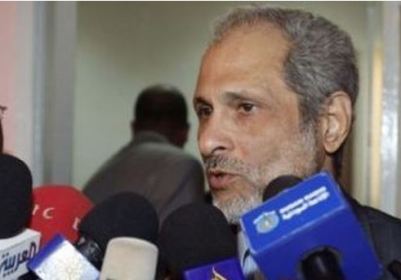Bashir’s remarks are part of military campaign, says NCP figure
May 28, 2013 (KHARTOUM) – Sudan’s ruling National Congress Party (NCP) leading figure and MP, Ghazi Salah Al-Deen al-Attabani, expressed reservation on remarks made by president Omer Al-Bashir about negotiations with rebels and South Sudan.

On Tuesday Ghazi told reporters that “Bashir’s remarks were part of a political speech delivered during a military campaign”, adding that the “final decision on these issues is up to the NCP’s institutions”.
Ghazi, who was a former presidential advisor, was sacked last month from his position as a leader of the NCP bloc at Sudan’s national assembly following remarks in which he said that president Omer Hassan al-Bashir is constitutionally barred from running again for presidency.
Commenting on the cooperation agreements between Sudan and South Sudan, Ghazi said they are likely to be breached, changed, or amended if one party doesn’t carry out its commitment, calling upon the two governments to meet their obligations with regard to those agreements.
He added “if one party breaches its obligations, the other party has the right to do the same thing’.
He further called for open discussions with Juba on accusations regarding South Sudan’s support for the rebel Sudan Revolutionary Front (SRF).
Ghazi stressed the difficulty of verifying security breaches along the border between Sudan and South Sudan which is a round to 2.000 km, noting that it is not easy to comb the border effectively.
Sudan accuses South Sudan of supporting rebels fighting in two states that border South Sudan. Juba denies supporting the rebels, known as Sudan People Liberation Movement North (SPLM-N), and in turn accuses Khartoum of backing insurgents on its territory.
Ghazi was a member of a 10-member group including Bashir, Nafie and Ali Osman Taha who stood against Turabi in 1999 because he demanded to hand over power to civilians and to give regions more autonomy.
However last November he denied his arrest by the security service with the former head of security and intelligence director Salah Gosh and some radical military calling for reform in the ruling party.
Despite that rumours continued to circulate about Ghazi and his relations with the this group of military and other Islamists calling for reform within his party and the Islamic Movement.
But once again he denied these speculations reaffirming his “aspirations for reform”.
Ghazi also acknowledged in statements he posted on the Facebook his connection to the group of radical army officers, adding that authorities did not accuse him for involvement in the coup.
He further stressed his refusal for military coups and the use of violence in politics, advising the government to equally share power and wealth and strengthen the central state.
Ghazi said the way out of the current impasse can be reached through a national dialogue leading to an agreement over a new political regime based on two pillars of justice and freedom. After what, he added, can be addressed security and economic crises and free elections can be organised in 2015.
He further underscored that fair division (of national wealth and power) between the centre and periphery is necessary to impose security on all over the country.
(ST)
